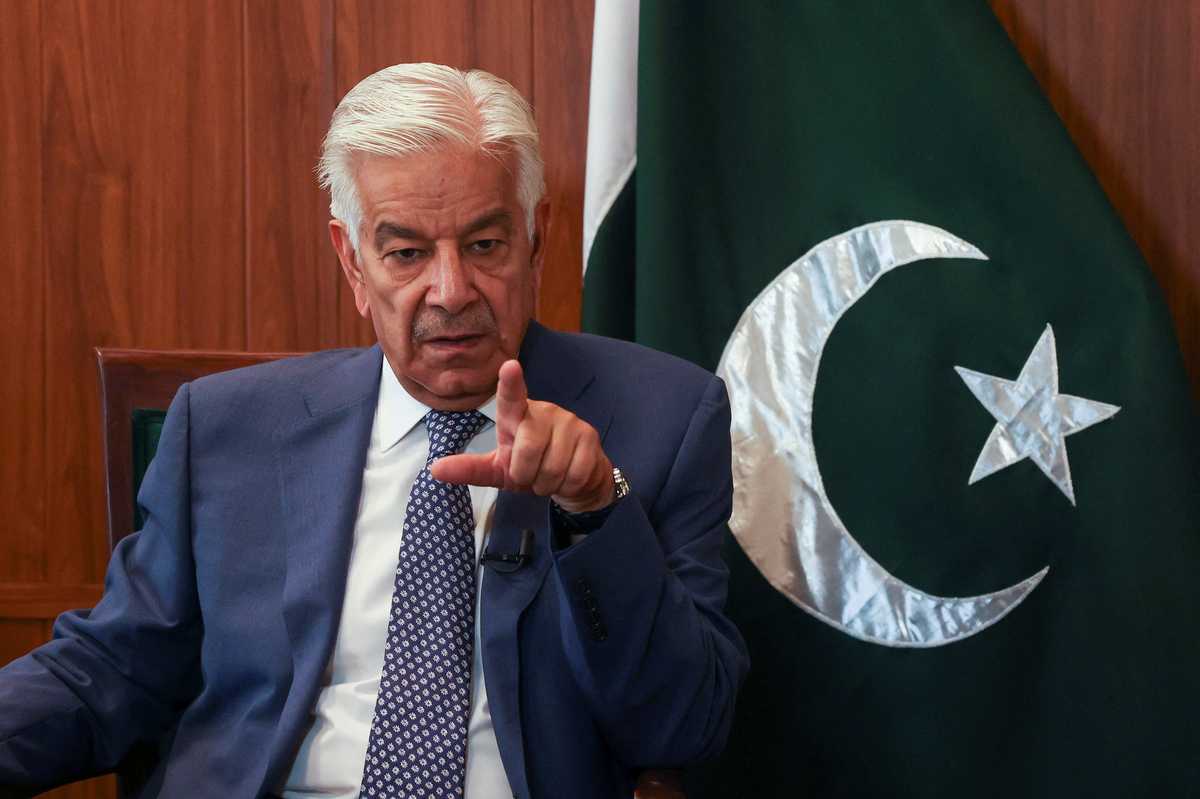Pakistan challenges independent probe of aircraft inventories after India’s jet downing claims
Defense minister warns ‘comical’ political narratives risk strategic miscalculation after India claims downing 5 Pakistani jets during May conflict
News Desk
The News Desk provides timely and factual coverage of national and international events, with an emphasis on accuracy and clarity.

Pakistan on Saturday dismissed India’s latest assertion that five Pakistani fighter jets and a military aircraft were shot down during the May conflict between the two nuclear-armed neighbors, suggesting both sides open their aircraft inventories for independent verification.
Demanding transparency, Pakistan’s Defense Minister Khawaja Asif said: “If the truth is in question, let both sides open their aircraft inventories to independent verification — though we suspect this would lay bare the reality India seeks to obscure.”
The minister criticized India for waiting nearly three months before making these claims public, reaffirming Islamabad’s stance that none of its aircraft were damaged in the confrontation.
Asif responded sharply to statements made earlier in the day by Indian Air Chief Marshal A.P. Singh during an event in Bengaluru. The Indian air chief had claimed electronic tracking data confirmed India shot down five Pakistani fighter jets along with one large military aircraft, possibly a surveillance plane, at a distance of 300 kilometers.
"We have at least five fighters confirmed killed, and one large aircraft," Marshal Singh declared, calling it “the largest ever recorded surface-to-air kill.” His remarks received applause from an audience that included current Air Force officers, veterans, and officials from government and industry.
Pakistan, however, has consistently rejected these claims. The country’s air force, which operates a mix of Chinese-made jets and American F-16s, has maintained that not a single Pakistani aircraft was hit or destroyed during the clashes from May 7 to 10.
Instead, Islamabad asserts it downed six Indian jets - including a French-made Rafale fighter - and severely damaged Indian air defenses.
Pakistan questions India’s 'three-month silence'
Responding to the Indian air chief’s remarks via a statement on X, the Pakistani minister said: “The belated assertions made by the Indian air force chief regarding alleged destruction of Pakistani aircraft during Operation Sindoor are as implausible as they are ill-timed.”
He added: “It is also ironic how senior Indian military officers are being used as the faces of monumental failure caused by strategic shortsightedness of Indian politicians. For three months, no such claims were voiced - while Pakistan, in the immediate aftermath, presented detailed technical briefings to the international media.”
He continued: “Independent observers recorded widespread acknowledgment of the loss of multiple Indian aircraft, including Rafales, by sources ranging from world leaders, senior Indian politicians to foreign intelligence assessments.”
On the question of aircraft losses, Asif emphasized: “Not a single Pakistani aircraft was hit or destroyed by India. Pakistan destroyed six Indian jets, S400 air defense batteries, and unmanned aircraft of India while swiftly putting several Indian airbases out of action.”
He also noted: “The losses on the Line of Control for Indian armed forces were disproportionately heavier as well.”
Warning of the dangers of misinformation, Asif said: “Wars are not won by falsehoods but by moral authority, national resolve and professional competence.”
He added: “Such comical narratives, crafted for domestic political expediency, increase the grave risks of strategic miscalculation in a nuclearized environment.”
Reaffirming Pakistan’s stance, the minister said: “As demonstrated during Operation Bunyanum Marsoos, every violation of Pakistan’s sovereignty and territorial integrity will invite swift, surefire and proportionate response.
“Responsibility for any ensuing escalation will rest entirely with strategically blind leaders who gamble with South Asia’s peace for fleeting political gains.”
What happened in May?
Tensions between Pakistan and India escalated sharply following a deadly attack on April 22, 2024, in Indian-administered Kashmir that killed 26 tourists. India blamed Pakistan-based militants - a charge Islamabad has repeatedly denied - and responded with air and missile strikes across the Line of Control.
Between May 7 and 10, both sides engaged in heavy artillery exchanges and drone fire, raising fears of a full-scale war. The conflict was eventually halted by a “full and immediate ceasefire” brokered by U.S. President Donald Trump on May 10, bringing temporary relief to the volatile region.
Adding another layer to the dispute, France’s air chief, General Jerome Bellanger, had reportedly confirmed the loss of three Indian fighter jets - including a Rafale - complicating the already conflicting accounts from both sides.
With additional input from Reuters







Comments
See what people are discussing